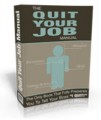
 License Type: Personal Use
License Type: Personal Use  File Type: ZIP
File Type: ZIP
 SKU: 62249
SKU: 62249  Shipping: Online Download
Shipping: Online Download
Sample Content Preview
How Does My Credit Affect Mortgage Rates?
It’s no secret that your credit rating can prevent you from getting a mortgage, but it’s not the case that you will be automatically turned down if your credit score isn’t at least 700. In fact, mortgages are possible even if your credit rating isn’t stellar.
So what effect does your credit score have on a home loan?
If your credit history doesn’t indicate a habit of paying on time and dependable, you’re a higher risk to pay off a loan. The higher the risk, the greater the interest rate.
A higher interest rate means higher monthly payments and a greater amount of payment overall. For example, on a $200,000 loan at 4.17%, you might expect to pay $975 per month and $150,833 on interest over the lifetime of a 30-year loan. If your credit does not qualify for a 4.17% interest rate, say more along the line of 5.213%, the monthly payment is closer to $1,100 each month which doesn’t seem much different until you figure out that you’re paying nearly double the initial price of the home in the long run.
There are several loans available for people with low credit scores. FHA, for exam-ple, will offer mortgages to people with a score of 500 and 10% or more down payment. USDA will offer loans to people with a score of 640 for rural housing purchases. For lose who qualify, the VA also offers loans to people with a score of 620 or better.
If your credit isn’t high, there are options. Instead of settling for the best rate you can get now, consider these alternatives.
1. Check your credit report. Look for errors. Clean them up, contact the credi-tor and ask them to retract misinformation.
2. If you’re in credit card debt, pay your credit cards down to 30% of the maxi-mum limit. Don’t pay them off, just get them down and keep up with the payments.
3. Pay your bills on time. This includes credit cards, loans, and rent.
4. If you’ve paid off old credit lines, don’t close them. Leave them open.
5. Don’t open more lines of credit, or at least not yet. Keep the credit/debit ra-tio as low as you can.
6. b before applying for a mortgage.
7. Regardless of where your credit is, when shopping for a lender (and by all means, shop for a lender), do all your searching in a 30-day window. All in-quiries made within 30 days on the same loan are considered one hit on your credit rating and will not continue to affect your credit score overall.
Improving your credit score isn’t fast, but it can save your thousands of dollars in the meantime. Do the work now, to save yourself money later.
How to Get a Mortgage with Poor or No Credit
Nearly a quarter of Americans have a credit score under 600. The national aver-age of 675 is still too low to qualify for the best rates in conventional mortgages.
The good news is that there are programs aimed at getting people with low credit scores into home ownership. These programs include government programs such as FHA and VA loans but also online lenders such as Quicken and Carrington. How does this work?
1. Simply bypass a low credit score with a higher down payment. A higher down payment establishes instant equity and means that you have to borrow less money for a larger secured value.
2. Check into government-sponsored programs. The FHA loan, for example, does not require 20% down, but does require 3.5%, and has liberal qualification re-quirements. The downside is that FHA has a certain maximum, meaning you may need to buy less of a house than you’d hoped. FHA also requires Private Mortgage Insurance (PMI), a costly form of insurance to pay the lender if you default on the loan.
3. Understand your credit and what it means. Most lenders have been known to help people with poor credit get a loan. They look at other factors than just the number like cash flow, earnings, and your history of paying off loans. Understand though that the lower the score, the higher the interest rate. That means higher monthly payments and a much higher payoff amount by the end of the loan.
4. Fixing your credit is possible and may be easier than you think. Check your credit report. There are free services online that you can use to investigate your credit score. Find the black marks, work with the creditors to remove those marks against you.
5. Check for errors on your reports. Often, a mistake or error will show up on your report. If you’re buying a house, a higher score has large ramifications, so don’t let the mistakes stand. Get a letter of clearance from the lender who re-ported against your credit saying the situation was an error or that the amount has been covered.
6. Start these processes early, before ever making an offer, before shopping around from place to place. At least 90 days prior to making an offer, let the credit changes have a chance to change. A short delay now will save you a large sum of money over the next two or three decades as you continue to make pay-ments on your home.
Buying a home doesn’t have to be impossible on poor or no credit, but there are things you can do to increase your odds of getting a home loan. Do the work now, to save yourself big money later. And never give up hope. Homeownership might still be on your radar, even with little or no credit.
Pros and Cons of Using an Online Mort-gage Lender
With the advent of the internet, many traditional "brick and mortar" businesses are going online. Today not only are books, tools, and movies available for down-load, but even mortgages are available online.
- License: Personal Use
- Category:Ebooks
- Tags:2018 Ebooks With Audio Personal Use







